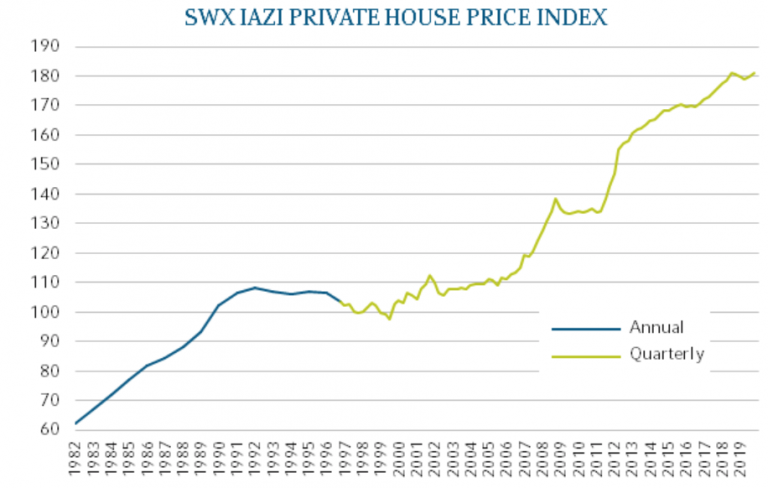In an interview recently published on the ZKB blog, Ursina Kubli, Head of Property Research at Zürcher Kantonalbank, answered the most important questions about the possible abolition of the imputed rental value. She explains ‘who would benefit the most, what effects are to be expected on property prices and why homeowners are now likely to feel the effects of interest rate developments even more strongly’.
Kubli is convinced that ‘after many unsuccessful attempts … an abolition of the imputed rental value is more likely than ever before. On the two major political sticking points between the Council of States and the National Council – the abolition of the imputed rental value for second homes and the debt interest deduction options – the Economic Committee of the Council of States has agreed to the National Council’s proposal. Whether and when the imputed rental value will actually be abolished depends largely on whether a referendum is held. The likelihood of this happening has decreased with the current proposal.’

‘An Abolition would primarily benefit those who have greatly reduced their mortgage – typically long-term property owners.’ Ursina Kubli, Head of Property Research at Zürcher Kantonalbank
She explains the key points of the proposed system change: ‘The imputed rental value is to be abolished for all owner-occupied properties. In return, the tax deduction for property maintenance will be abolished and the general debt interest deduction will be reduced. When an owner-occupied property is purchased for the first time, there will be a special deduction for debt interest for ten years, which will fall to zero over this period.’
According to Kubli, all those who have greatly reduced their mortgages, i.e. typically long-standing property owners, are likely to benefit from the change in the system. In the current interest rate environment, however, first-time buyers should also benefit slightly thanks to interest deduction options in the first few years. She continues: ‘Even if all homeowners are happy about the abolition of the imputed rental value, they need to know one thing: they will feel the ups and downs of interest rates more strongly in their wallets in future. Under the current regime, there was a natural interest rate hedge. If interest rates were high, you could save on taxes.’ However, she believes the impact on property market prices will be minimal.
However, she expects a greater impact on the market for older properties if maintenance costs are no longer deductible in future. This could curb demand for old properties, she believes. But, according to Kubli: ‘Before the new regulation comes into force, there is likely to be a renovation boom, as renovation work that was due to be carried out anyway will be realised or brought forward. Craftsmen will have their hands full and a shortage of skilled labour is foreseeable in this area.’
According to Kubli, owners of holiday properties will probably have to pay a contribution to the mountain cantons in future, as the planned property tax should compensate the mountain cantons for the tax losses resulting from the abolition of the imputed rental value. However, the specific form of this would first have to be defined.


